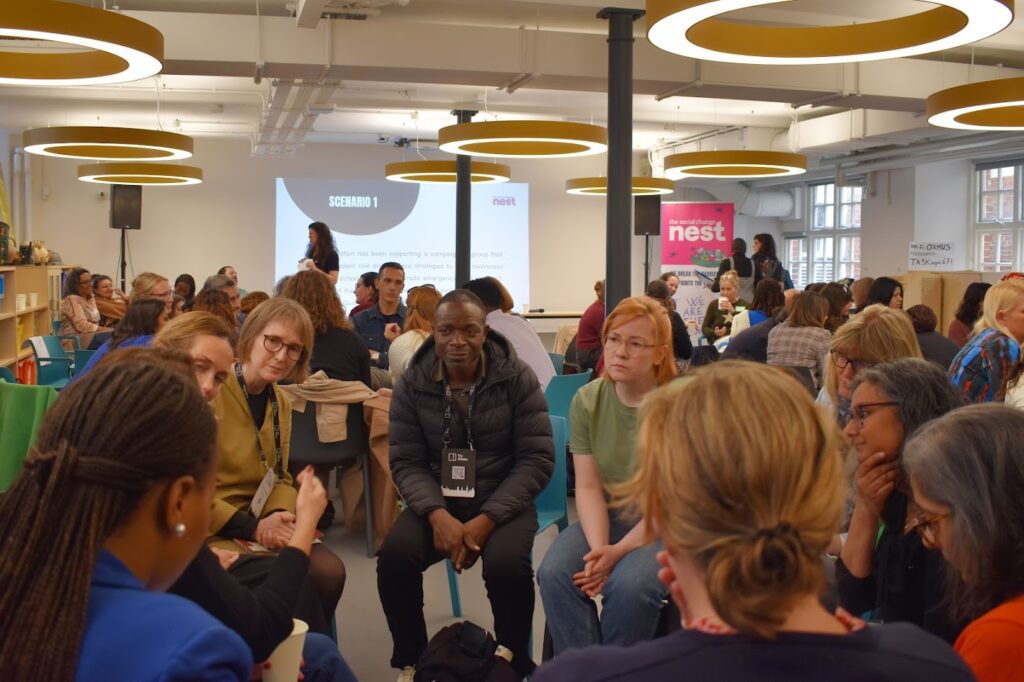Pay-it-forward support collective for budding animal behaviour scientists

We spoke with two of the collective’s founders, Kirsty Graham and Ann-Sophie Warkentin, to learn how a group of animal behaviour scientists, researchers and academics are creating mentorship and financial support opportunities for budding undergraduates and graduates – supported by The Social Change Nest’s fiscal hosting service.
Tell us about Animal Behaviour Collective’s mission?
The Animal Behavior Collective was founded for students of animal behaviour by a group of scientists, academics and researchers in the field. We support animal behaviour students in two ways: Firstly, via microgrants, which work through The Social Change Nest’s fiscal hosting service where students can apply and get funded up to £200 for private costs which might include things like rent, living costs, child care. And the other form of support is through mentorship. We have quite a few people that work in animal behaviour, who are happy to help students with any questions they might have for things like applications to jobs, or PhDs, or just general questions of how to move along as an animal behaviour student.
The founders of the collective discovered whilst they were studying, that universities have a lot of funding for research projects, for equipment, travel costs and specific research expenses. But there’s a lack of financial support for students as individuals. The Animal Behaviour Collective is filling this gap for students who need money to pay rent, to pay groceries, to pay child care – who are struggling to complete their studies because of personal financial reasons.
What is the change you’re aiming to create in the world?
We want to make the field of animal behaviour more accessible to a broader range of people by removing financial barriers. We do this by offering microgrants, providing mentorship, building networks and offering new connections for those who would have been historically excluded from these spaces.
What holds you back from achieving this?
Since our conception, we have been able to distribute £17k of donations. But the volume of requests we receive from students around the world is more than the donations we receive. Currently, we have a recurring donation of about £350 a month, yet every single application seems to be for the maximum amount of £200, totalling around £3-4k per month. The struggle is seeing how many people we are letting down each month by only being able to offer a limited amount of support.
How has fiscal hosting helped you?
The whole system of how the collective redistributes money wouldn’t be possible without The Social Change Nest’s fiscal hosting. The incoming donations are collected with ease and so the collective’s grants team just need to go through and approve applications each month. Comparing traditional forms of money management to fiscal hosting would be a huge administrative burden – using a base structure like Open Collective and The Social Change Nest makes our whole concept possible.
What advice would you give to others facing similar challenges?
We have found fiscal hosting much easier to use than expected. It has streamlined our administrative and financial processes saving us time whilst both setting up and ongoing.
From the outset we have been attracting more students seeking support than donors. At first our outreach was mostly via social media and then more recently we’ve been proactively attending more academic conferences. By doing more ‘real world events’ we’ve found more potential supporters and have been able to talk to them directly about our impact and aims.
“Our main advice is just try it” – Ann-Sophie Warkentin, Animal Behaviour Collective
What do you see as the future of fiscal hosting?
Currently the Open Collective platform is geographically limited by bank transfers, so we work around this by using other companies like WorldRemit or TransferWise. But this is less streamlined and reliable, meaning students in countries not serviced by standard bank transfers sometimes have a delay receiving their microgrants. Our hope is that integrating global money transfer into fiscal hosting will improve efficiency and transparency while allowing us to reach more students around the world.
What are your hopes and dreams for the future?
As a collective, we are dreaming big – our hope is that there will be plenty of funding for students across all fields of study because there are so many people who don’t get to go to university because of financial reasons. Whether this is via individual collectives for each subject or universities realising how much more funding needs to be available to provide for all types of students.
One area that we’ve identified as a growth opportunity is that many work experience opportunities are unpaid for graduates and students. This puts students who do not have the financial stability to take on unpaid work at a disadvantage. We are positioning ourselves to be able to campaign for pay during internships and creating opportunities for local hardship funds.
You can follow the Animal Behaviour Collective here https://linktr.ee/animalbehaviourcollective
- Case studies

